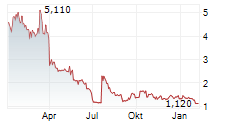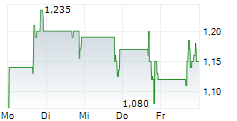Findings show that Telomir-1 restores the body's natural tumor suppressor defenses by reversing abnormal DNA methylation of MASPIN and RASSF1A - genes that help block invasion, limit metastasis, and improve chemotherapy responsiveness in aggressive prostate cancer models.
MIAMI, FLORIDA / ACCESS Newswire / October 7, 2025 / Telomir Pharmaceuticals, Inc. (NASDAQ:TELO) ("Telomir" or the "Company"), a preclinical-stage biotechnology company developing therapies that target epigenetic drivers of cancer, aging, and age-related disease, today announced new preclinical results showing that its investigational therapy Telomir-1 reactivated two of the body's most important tumor suppressor genes, MASPIN ("tumor suppressor shield") and RASSF1A ("guardian gene" also called SERPINB5), through DNA methylation reset in prostate cancer models. By restoring the activity of these genes, Telomir-1 may help prevent cancer spread and improve chemotherapy response
Key New Findings
MASPIN ("tumor suppressor shield"): MASPIN is a natural defense protein that blocks tumor invasion, regulates cell migration and angiogenesis, promotes apoptosis, and enhances treatment sensitivity. In an aggressive prostate-cancer model in vivo, MASPIN was silenced by DNA hypermethylation. Telomir-1 reversed the chemotherapy-induced DNA methylation to restore MASPIN activity, consistent with reactivation of this key tumor-suppressor pathway.
RASSF1A ("guardian gene", also called SERPINB5):
RASSF1A is a critical regulator of cell cycle brakes, apoptosis, and suppression of metastasis. It is commonly silenced in aggressive cancers by hypermethylation. Telomir-1 reduced RASSF1A methylation in a dose-dependent manner, with stronger effects when combined with chemotherapy.Implication: These results suggest Telomir-1 may reactivate natural tumor defenses, counteract chemotherapy-induced resistance mechanisms, and help limit metastasis - two of the most persistent challenges in oncology.
Why This Matters
Metastasis is responsible for the vast majority of cancer deaths, and chemotherapy resistance remains a major barrier to durable responses. Tumors often silence genes like MASPIN and RASSF1A by hypermethylation to disable the body's natural defenses.
Telomir-1's ability to reset DNA methylation, restore tumor suppressor activity, and synergize with chemotherapy provides a compelling preclinical rationale for its potential as a first-in-class epigenetic reset therapy in oncology.
Scientific Perspective
"The potential reactivation of MASPIN and RASSF1A by inhibition of hypermethylation is highly significant because these genes play a central role in blocking tumor invasion, uncontrolled growth, and metastasis," said Dr. Itzchak Angel, CSA at Telomir. "By demonstrating that in addition to an effect on DNA methylation of other key proteins, such as STAT1 and CDKN2A, Telomir-1 can also reset DNA methylation and restore the function of these silenced tumor suppressors, we are providing strong mechanistic evidence that this drug candidate could address cancer at its epigenetic roots in a broader manner."
CEO Perspective
"These results highlight Telomir-1's potential to change the way we think about treating cancer and aging," said Erez Aminov, CEO of Telomir. "Instead of only managing disease progression; Telomir-1 may reset the underlying epigenetic programs that drive tumor growth, resistance, and cellular decline. By reawakening the body's natural defenses, this approach could mark a new era in medicine - one where we target the root biology of cancer and age-related disease."
Building on Prior Work
Telomir-1 has previously demonstrated in preclinical studies:
Reactivating tumor suppressors such as STAT1 (immune surveillance), CDKN2A (cell cycle brake), and TMS1 (apoptosis mediator).
Histone demethylase inhibition: activity across JMJD3 (KDM6B), UTX (KDM6A), FBXL10 (KDM2B), FBXL11 (KDM2A), and the KDM5 family - enzymes long considered undruggable despite their central role in cancer, inflammation, and resistance.
Mitochondrial health restoration: improved energy production while reducing oxidative stress (ROS) and avoiding unwanted cell proliferation, suggesting relevance to cancer metabolism as well as Alzheimer's, Parkinson's, ALS, and Progeria.
Wnt "fuel line" modulation: modest Tankyrase inhibition that may cut off cancer's growth signaling without telomere-shortening toxicity.
Selectivity advantage: sparing broad acetyltransferases such as GCN5L2, reducing systemic toxicity risk.
Telomere & aging benefits: elongated telomeres and reversal of epigenetic drift in accelerated-aging models.
Functional in vivo outcomes: ~50% tumor volume reduction and elimination of chemotherapy-related mortality in aggressive prostate cancer models.
Together, these findings support Telomir-1's emerging profile as a broad-spectrum epigenetic and metabolic reset therapy with potential applications across oncology, neurodegeneration, autoimmune disease, metabolic dysfunction, and aging.
Next Steps
Telomir is advancing Telomir-1 through preclinical development and IND-enabling studies. Additional evaluations are underway in prostate cancer and other aggressive tumor models where epigenetic silencing and metabolic dysfunction drive metastasis and treatment resistance.
About Telomir Pharmaceuticals
Telomir Pharmaceuticals, Inc. (NASDAQ: TELO) is a preclinical-stage biotechnology company developing small-molecule therapies that target the root causes of cancer, aging, and age-related diseases by resetting dysregulated epigenetic programs. The Company's lead candidate, Telomir-1, is being advanced across oncology and longevity indications based on its differentiated ability to restore tumor suppressors, block undruggable enzymes, and reprogram gene control. For more information, visit www.telomirpharma.com.
Cautionary Note Regarding Forward-Looking Statements
This press release, statements of Telomir's management or advisors related thereto, and the statements contained in the news story linked in this release contain "forward-looking statements," which are statements other than historical facts made pursuant to the safe harbor provisions of Section 27A of the Securities Act of 1933, as amended, and Section 21E of the Securities Exchange Act of 1934, as amended. These risks and uncertainties include, but are not limited to, the potential use of the data from our studies, our ability to develop and commercialize Telomir-1 for specific indications, and the safety of Telomir-1.
Any forward-looking statements in this press release are based on Telomir's current expectations, estimates and projections only as of the date of this release. These and other risks concerning Telomir's programs and operations are described in additional detail in its Annual Report on Form 10-K for the fiscal year ended December 31, 2024, which are on file with the SEC and available at www.sec.gov. Telomir explicitly disclaims any obligation to update any forward-looking statements except to the extent required by law.
Contact Information
Helga Moya
info@telomirpharma.com
(786) 396-6723
SOURCE: Telomir Pharmaceuticals, Inc
View the original press release on ACCESS Newswire:
https://www.accessnewswire.com/newsroom/en/healthcare-and-pharmaceutical/telomir-pharmaceuticals-announces-new-findings-in-a-prostate-cancer-m-1082823


